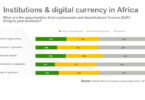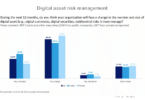A Pfizer and Biogen-led organization, called the Clinical Supply Blockchain Working Group (CSBWG), has completed a proof of concept project for a digital inventory and event tracking record in the pharmaceutical clinical supply chain.
Apart from Pfizer and Biogen, the Group boasts some big names including GlaxoSmithKline, AstraZeneca, Merck and Deloitte.
The Group’s humble beginnings explain how such a star-studded team could have gone unnoticed. According to Outsourcing-Pharma, the Group was organized from an open-invitation workshop at the Pfizer Blockchain Center of Excellence.
LedgerDomain developed the application, dubbed KitChain, using its LedgerDomain Selvedge server which is based on Hyperledger Fabric. The project is at the Proof of Concept stage.
Currently, the pharmaceutical clinical supply chain relies on paperwork to record the movement of packaged medicine involved in clinical trials.
KitChain uses a blockchain-based solution to track shipments of packaged medicines which are sent by the pharmaceutical companies. All parties can see when the delivery is both sent and received. Tracking the logistics is just the first step in a potentially larger project.
Apart from being faster and more efficient than paper methods, the digital system is also more secure. The sender and receiver have control over who can see the details of a particular shipment and any third-party viewers are unable to change any of these details. Otherwise, the shipper and receiver can enjoy complete confidentiality.
The next step for the project is a clinical trial under GxP regulations.
According to Outsourcing-Pharma, the final goal is to develop an interoperable, transparent and auditable platform to track investigational drug and comparators from manufacture to patient.
Indeed, Chad Sklodosky, director, digital supply chain center of excellence, Pfizer, and co-chair of CSBWG, indicated a promising future: “As we learn more about the technology, what other value you can derive from, say, the regulatory reporting process, the drug accountability process at sites, the upstream tracking of the investigational product…There’s a lot of additional use cases that have the potential to build on what we’ve started as part of this first track-and-trace.”
However, his boots on firmly on the ground: “But the reality is, you’ve got to put at least one of these use cases into production in order to expand on that end-to-end visibility of the supply chain. We’re still working together toward that goal, but there is still a lot more opportunity that we haven’t even realized yet.”
Pfizer is involved in several other blockchain initiatives. It’s a member of the MediLedger project, both for traceability to comply with the Drug Supply Chain Security Act (DSCSA) and pharma contracting. In Europe, it is a participant in the Innovative Medicines Initiative‘s (IMI) blockchain-enabled healthcare program. It’s even involved in a blockchain advertising project with IBM and MediaOcean alongside other big brands.
Other blockchain initiatives for clinical trials include IBM/Boehringer Ingelheim, Merck with genomics firm Nebula, and Gustave Roussy in France.
https://youtu.be/NR0vSrhnAhM






